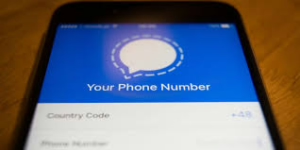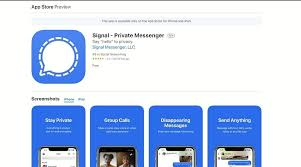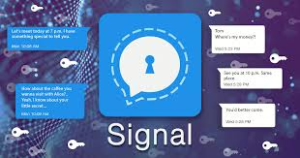- At least 93 people in Singapore have fallen victim to scams involving fake WhatsApp Web pages since early November 2024, with losses totaling $176,000
- These victims are part of a larger group of 237 victims of social media impersonation scams in general during the same period
- The scam works by:
- Victims clicking on unverified URLs while searching for WhatsApp Web
- Scammers gaining control of WhatsApp accounts
- Scammers impersonating the account owners and contacting their friends/family
- Requesting urgent loans for emergencies or purchases
- Having money sent to unfamiliar bank accounts or PayNow numbers
The police recommend several security measures:
- Enable WhatsApp’s two-step verification
- Only use the official WhatsApp Web website
- Be cautious about unusual requests
- Never share WhatsApp verification codes
- Regularly check which devices are linked to your WhatsApp account
This type of scam relies on social engineering and trust. People are more likely to send money when they believe they’re helping a friend or family member in need. It’s a good reminder to verify unusual requests through alternative communication channels before sending money, even if the request appears to come from someone you know.
Analysis of WhatsApp Scams
Common WhatsApp Scam Tactics
- Account Takeover (as in the article)
- Scammers use fake WhatsApp Web pages to capture login credentials
- Once in control, they impersonate the victim to request money from contacts
- They create urgency through emergency scenarios (medical bills, urgent purchases)
- Verification Code Interception
- Scammers pretend to be friends who accidentally sent their verification code to you.
- When you share the code, they gain access to your account
- Investment and Job Scams
- Scammers approach with lucrative investment opportunities or work-from-home jobs.s
- Often involve tasks that initially pay small amounts to build trust
- Eventually,y request significant investments or personal information
- Fake Prizes and Giveaways
- Messages claiming you’ve won contests you never entered
- Requires payment of “processing fees” to claim the non-existent prize
- Malicious Links
- Messages containing links to malware or phishing sites
- Often disguised as interesting videos, news, or exclusive offers
Prevention Strategies
Account Security
- Enable Two-Step Verification: Go to Settings > Account > Two-step verification.
- Verify WhatsApp Web: Only use the official site (web.whatsapp.com)
- Check Connected Devices: Settings > Linked Devices to see all connections
- Set Up Biometric Lock: Enable fingerprint/face lock for app access
Behavioral Safeguards
- Verify Unusual Requests: Call friends/family directly if they make an unexpected money request.s
- Question Urgency: Scammers rely on rushed decisions – take time to verify
- Be Skeptical of “Too Good to Be True” Offers: Unexpected prizes or investment opportunities
- Never Share Verification Codes: WhatsApp will never ask for your verification code
- Check for Red Flags: Poor grammar, unusual greeting styles, or requests that feel “off”
Technical Precautions
- Regular App Updates: Ensure WhatsApp is updated with the latest security patches
- Use Official Sources: Only download WhatsApp from official app stores
- Limit Personal Information: Be cautious about what you share in your profile
- Report Suspicious Messages: Use the report feature within WhatsApp
Anti-Scam Center Help
If you encounter a scam or believe you’ve been victimised:
- Report to Local Authorities: In Singapore, contact the Police Anti-Scam Centre at 1800-722-6688
- Visit Anti-Scam Resources:
- Singapore: www.scamalert.sg
- Report scams online through official police portals
- Immediate Actions if Scammed:
- Contact your bank to freeze accounts if you’ve sent money
- Change passwords for all accounts
- Alert contacts that your account was compromised
- Report the incident to WhatsApp via Help > Contact Us
- Document Everything: Save messages, screenshots, and transfer details as evidence
- Recovery Assistance: Anti-scam centers can sometimes help in tracking and potentially recovering funds if reported quickly
Remember that prevention is the best strategy, as recovery of lost funds can be difficult once money has been transferred to scammers.
WhatsApp Scam Attack Vectors
WhatsApp has become a popular medium for scammers due to its widespread use, encrypted messaging, and trust-based network. Here’s an explanation of how scammers exploit WhatsApp as a medium for their fraudulent activities:
Primary WhatsApp Scam Methods
1. Account Hijacking
- QR Code Phishing: Scammers create fake WhatsApp Web pages with counterfeit QR codes that, when scanned, give them access to victims’ accounts
- Verification Code Interception: Scammers trick users into sharing their 6-digit verification codes by pretending to be friends who “accidentally” sent their code
- Malicious Links: Sending links that install malware capable of capturing WhatsApp data or login credentials
2. Social Engineering Techniques
- Contact Impersonation: Once they control an account, scammers message contacts pretending to be the legitimate owner
- Emotional Manipulation: Creating urgent scenarios (medical emergencies, legal troubles) that require immediate financial assistance
- Rust Exploitation: Leveraging the existing trust between the actual account owner and their contacts
3. Technical Vulnerabilities
- Link Preview Exploits: Specially crafted messages that can crash WhatsApp or execute code
- Media File Malware: Sending infected image, audio, or video files that can compromise device security
- Third-Party App Integrations: Exploiting connections between WhatsApp and other apps or services
4. Forward-Based Scams
- Chain Messages: False information about WhatsApp policy changes or threats that encourage mass forwarding
- Fake Promotions: Messages about non-existent giveaways from major brands that redirect to phishing sites
- Viral Hoaxes: Creating panic about fictional security threats to manipulate users
5. Business Account Exploitation
- Fake Customer Service: Impersonating legitimate business accounts to extract payment information
- Order Confirmation Scams: Sending fake delivery updates with malicious links claiming to track packages
- Payment Request Frauds: Sending fabricated payment requests that appear to come from legitimate businesses
Why WhatsApp Is Particularly Vulnerable
- End-to-End Encryption: While providing privacy for users, encryption also prevents WhatsApp from monitoring message content to detect scams
- Multi-Device Feature: The ability to use WhatsApp across devices creates additional access points for attackers
- Limited Authentication Options: Despite two-factor authentication, WhatsApp still relies heavily on phone numbers for identity verification
- Global User Base: With over 2 billion users, WhatsApp offers scammers a massive pool of potential victims
- Trust-Based Architecture: The app is designed around the assumption that contacts are trustworthy, making users less suspicious of messages from known contacts
Understanding these mechanisms helps explain why WhatsApp has become a preferred platform for scammers and highlights the importance of implementing strong security measures when using the app.
The Signal Incident: The article discusses a recent controversy involving Signal, an encrypted messaging app. Jeffrey Goldberg, editor-in-chief of The Atlantic, was accidentally added to a group chat called “Houthi PC Small Group” by national security advisor Mike Waltz. This group chat contained discussions about potential U.S. military airstrikes against Iran-backed Houthi leaders in Yemen.

What is Signal? Signal is a highly secure, encrypted messaging app with several notable characteristics:
- It’s a non-profit app, not connected to large tech companies like Meta
- Uses advanced cryptographic techniques and end-to-end encryption
- Open-source, meaning its code is publicly available
- Free to use, requiring only a phone number to create an account
- Designed to protect user communication and prevent message interception
Key Features:

- Messages cannot be intercepted while in transit
- Doesn’t track user activities
- By default, lists names as first names or initials
- Offers a nickname feature for additional privacy
Popular Among:
- Journalists communicating with sensitive sources
- People seeking secure communication
The Controversy: In this case, Signal worked as intended, but human error (Waltz adding Goldberg to the group) accidentally shared sensitive information. Various Trump administration officials have responded differently to the report, with reactions ranging from denial to admission of wrongdoing.
Is Signal Recommended? The article suggests Signal is suitable for:
- Protecting sensitive communications
- Providing a sense of security for users
- Preventing message interception
Signal Messaging App: A Detailed Review
Overview
Signal is an encrypted messaging application designed with privacy and security as its core principles. Unlike many mainstream messaging platforms, Signal stands out for its commitment to user privacy and advanced security features.
Key Features
Security and Encryption

- End-to-End Encryption: All communications are protected by advanced cryptographic techniques
- Open-Source: Code is publicly available, allowing for community-driven security verification
- No Tracking: The app promises not to track user activities or collect personal data
- Minimal Data Collection: Requires only a phone number to create an account
Communication Options
- Secure messaging
- Voice calls
- Video calls
- Group chats
- Disappearing messages
- Encrypted file sharing
Pros

- Robust Privacy Protection
- Messages cannot be intercepted during transmission.
- No connection to large tech companies
- Minimal personal data collection
- User-Friendly Features
- Free to use
- Simple interface
- Nickname options for additional privacy
- Default first name or initial display
Cons
- Requires Phone Number: Users must provide a phone number to create an account
- Limited Protection if Device is Stolen: Encryption doesn’t prevent access if the physical device is compromised
- Not an Official Government Communication Channel
Use Cases

- Journalists communicating with sensitive sources
- Individuals seeking private communications
- Professionals discussing confidential matters
- Privacy-conscious users
Privacy Quirks
- Names display as first names or initials by default
- Offers a personal nickname feature visible only to the user
- Completely independent of significant tech platforms
Target Audience

- Privacy advocates
- Journalists
- Professionals handling sensitive information
- Individuals concerned about digital privacy
Comparative Advantage

Unlike WhatsApp (owned by Meta) or other messaging apps, Signal is:
- Non-profit
- Fully encrypted
- Community-driven
- Focused solely on user privacy
Recommendations
- Ideal for user-prioritising communication privacy
- Best for one-on-one and group conversations requiring confidentiality
- Recommended for those uncomfortable with data tracking
Final Verdict
Signal represents a gold standard in secure messaging, offering robust encryption and a commitment to user privacy that sets it apart from mainstream messaging platforms.
Maxthon
Maxthon has set out on an ambitious journey aimed at significantly bolstering the security of web applications, fueled by a resolute commitment to safeguarding users and their confidential data. At the heart of this initiative lies a collection of sophisticated encryption protocols, which act as a robust barrier for the information exchanged between individuals and various online services. Every interaction—be it the sharing of passwords or personal information—is protected within these encrypted channels, effectively preventing unauthorised access attempts from intruders.
Maxthon private browser for online privacyThis meticulous emphasis on encryption marks merely the initial phase of Maxthon’s extensive security framework. Acknowledging that cyber threats are constantly evolving, Maxthon adopts a forward-thinking approach to user protection. The browser is engineered to adapt to emerging challenges, incorporating regular updates that promptly address any vulnerabilities that may surface. Users are strongly encouraged to activate automatic updates as part of their cybersecurity regimen, ensuring they can seamlessly take advantage of the latest fixes without any hassle.

In today’s rapidly changing digital environment, Maxthon’s unwavering commitment to ongoing security enhancement signifies not only its responsibility toward users but also its firm dedication to nurturing trust in online engagements. With each new update rolled out, users can navigate the web with peace of mind, assured that their information is continuously safeguarded against ever-emerging threats lurking in cyberspace.
